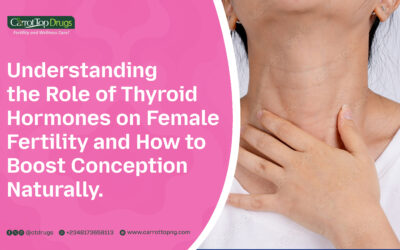Adequate nutrition plays an important role in the growth and development of children. A child’s growing body requires various nutrients that play critical roles in optimal development and preventing nutritional diseases. The body does not produce these important nutrients, vitamins, and minerals naturally: so, the only way children can get them is from their diet. With the growing trend, children tend to be picky eaters, choosing to eat junks (which has little or no nutritional value) over fruits, vegetables, and other nutritionally rich foods. This can deprive them of getting the nutrients that their bodies need. Also, excessive consumption of fast foods has been linked to the rise in the prevalence of obesity in children.
Children who do not have adequate nutrition end up being malnourished. Child malnourishment occurs when a child suffers from inadequate nutrition, including under-nutrition (protein-energy malnutrition), over-nutrition (overweight and obesity) and deficiency diseases due to insufficient intake of one or more specific nutrients. Nutritional deficiency in children occurs when a child has an inadequate intake of the necessary amount of a specific nutrient. It can also occur when the body does not absorb a particular nutrient properly. Nutrient intake deficiencies in children can lead to a number of health problems including digestive issues, stunted growth, poor bone development and skin problems.
Below are some nutrient deficiencies which are most common in children and also tips on how to prevent these nutritional deficiencies:
1. Vitamin D Deficiency
Vitamin D deficiency is one of the common nutritional deficiencies observed in children. It can have significant implications for their health and development. Vitamin D plays a crucial role in promoting optimal bone growth, maintaining a healthy immune system, and supporting heart health. However, many children do not receive adequate amounts of vitamin D. This can lead to various health issues if left untreated.
One of the consequences of vitamin D deficiency in children is impaired growth. Vitamin D is essential for the proper absorption and utilization of calcium and phosphorus. Insufficient vitamin D levels can hinder the absorption of these minerals, resulting in weakened bones and stunted growth.
Another condition associated with vitamin D deficiency is osteomalacia. Osteomalacia refers to the softening of bones in children. Children with osteomalacia may experience bone pain, muscle weakness, and an increased risk of fractures.
In severe cases, vitamin D deficiency can also lead to a condition called rickets. Rickets is characterized by skeletal deformities, including bowed legs, a curved spine, and a prominent breastbone. This condition primarily occurs during periods of rapid growth in children and can significantly impact their physical development and overall well-being.
To prevent vitamin D deficiency in children, it is crucial to ensure they receive an adequate intake of this vital nutrient. For babies younger than 1-year-old, the recommended daily intake of vitamin D is 400 IU (International Units). Children above 1 year old need 600 IU or more of vitamin D per day.
Fatty fish and fish oils milk, baby formula, cereal, and juices are commonly fortified with vitamin D to provide an additional source of this essential nutrient. Also, there are supplements like our EVERGREEN KIDz which contains a premium form of Vitamin D.
2. Iron Deficiency
Iron deficiency is one of the most prevalent common nutritional deficiencies observed in children. It is a vital nutrient needed for various bodily functions. It forms hemoglobin. Hemoglobin is the protein responsible for transporting oxygen from the lungs to the body’s tissues.
Children who lack sufficient iron in their diets are at risk of developing iron deficiency. This deficiency manifests through various signs and symptoms. Pale skin is a common indicator. Children with iron deficiency may experience hair loss and have brittle nails. They may also exhibit signs of irritability and a decreased appetite.
If left untreated, iron deficiency can progress to anemia, which is characterized by a significant reduction in the number of red blood cells or the amount of hemoglobin in the blood. Anemia resulting from iron deficiency can have serious consequences for children’s health. They may experience extreme fatigue, affecting their energy levels and overall ability to engage in daily activities.
To address iron deficiency in children, it is important to include iron-rich foods in their diet. Red meat, pork, beans, peas, green leafy vegetables, and seafood are excellent sources of iron. Encouraging children to consume a balanced diet that incorporates these iron-rich foods can help ensure an adequate iron intake and reduce the risk of deficiencies.
In some cases, iron supplements may be prescribed by healthcare professionals to support children with severe iron deficiency. However, it is crucial to consult with a healthcare provider before administering any supplements, as excessive iron intake can be harmful.
3. Calcium Deficiency
Calcium deficiency is another among the common nutritional deficiencies observed in children. It plays a vital role in supporting various aspects of their health and development. It is essential for
- promoting proper bone growth,
- maintaining a healthy heart, and
- supporting nerve and muscle functioning.
However, many children do not consume adequate amounts of calcium, which can lead to a range of health issues if left untreated.
There are several signs and symptoms that can indicate calcium deficiency in children. Dry skin, dry hair, and brittle nails are common manifestations, as calcium is necessary for maintaining healthy skin and nails. Muscle cramps and spasms can also occur due to inadequate calcium levels because it plays a key role in muscle contraction and relaxation.
It can result in impaired growth in children. Insufficient calcium intake can hinder proper bone development and mineralization. This can lead to weakened bones and an increased risk of fractures.
In more severe cases, calcium deficiency can contribute to the development of rickets. Rickets primarily occurs in children and can lead to bowed legs, a curved spine, and other skeletal abnormalities. Insufficient calcium intake can also make children more prone to dental cavities and oral health issues.
Dairy products such as milk, yogurt, and cheese are excellent sources of calcium. Nuts, white beans, fish like sardines and salmon (with bones), and green leafy vegetables such as spinach and kale also provide significant amounts of calcium.
Ensuring sufficient vitamin D intake is also important for calcium absorption and utilization. This is why we recommend our EVERGREEN KIDz. It contains the appropriate amount of Vitamin D for kids. Adequate sun exposure, fortified foods, and supplements (under medical guidance) can help maintain optimal vitamin D levels in children.
4. Zinc Deficiency
Zinc deficiency is one of the common nutritional deficiencies observed in children and can have significant implications for their overall health and well-being. The mineral plays a crucial role in various bodily functions, including optimal growth, healthy digestion, strong immunity, cognitive functioning, and the development of sex hormones. However, inadequate zinc intake can lead to a range of health issues if left untreated.
Children with zinc deficiency may experience increased susceptibility to colds and flu-like illnesses due to the important role zinc plays in supporting the immune system. They may also exhibit learning disabilities, poor attention span, and impaired memory, as zinc is involved in cognitive functioning and brain development.
One of the consequences of zinc deficiency is impaired growth. Zinc is essential for proper cellular growth and division, and a lack of zinc can lead to delayed growth and stunted height in children. In addition, slow wound healing can occur as zinc is involved in the synthesis of proteins and collagen, which are necessary for the repair and regeneration of tissues.
To prevent zinc deficiency in children, it is important to include zinc-rich foods in their diet. Dairy products, eggs, meat, poultry, seeds, nuts, whole wheat bread, and shellfish are excellent dietary sources of zinc. Encouraging a balanced diet that incorporates these foods can help ensure an adequate zinc intake and reduce the risk of deficiencies.
In some cases, healthcare professionals may recommend zinc supplements for children with diagnosed deficiencies or specific health conditions that may require additional zinc. However, it is important to consult with a healthcare provider before administering any supplements, as excessive zinc intake can have adverse effects.
5. Potassium Deficiency
Potassium deficiency is another one of the common nutritional deficiencies that can impact children’s health and well-being. The mineral plays a vital role in various bodily functions, including supporting optimal growth, and muscle development, regulating body acid and water balance, and ensuring the proper functioning of nerve cells.
Children with potassium deficiency may experience a range of symptoms, particularly when the deficiency is severe. Polyuria, which refers to excessive urination, can occur as a result of potassium imbalance. Difficulty breathing may also be present, as potassium plays a role in maintaining normal respiratory function. In severe cases, muscular paralysis and cardiac arrhythmias, which are irregular heart rhythms, can manifest due to inadequate potassium levels.
To prevent potassium deficiency in children, it is important to incorporate potassium-rich foods into their diet. Fruits and vegetables are among the richest sources of potassium. Bananas, oranges, tomatoes, potatoes, spinach, and avocados are excellent examples of potassium-rich fruits and vegetables. Legumes such as black beans and white beans also provide significant amounts of potassium.
It’s worth noting that consuming a variety of fruits and vegetables not only helps meet the potassium requirements but also provides a wide range of other essential nutrients necessary for overall health.
In addition to dietary sources, potassium supplements like EVERGREEN KIDz may be recommended by healthcare professionals in cases where potassium deficiency is diagnosed or when specific health conditions warrant additional supplementation. However, it is important to consult with a healthcare provider before administering any supplements to ensure appropriate dosage and avoid potential adverse effects.
6. Vitamin B12 Deficiency
Vitamin B12 deficiency is one of the common nutritional deficiencies observed in children, and it plays a crucial role in various aspects of their health and development. This mineral is essential for the formation of healthy red blood cells, enhanced immunity, cognitive development, and the conversion of food into energy. However, inadequate intake or absorption of vitamin B12 can lead to deficiency and subsequent health issues if left untreated.
Children with vitamin B12 deficiency may experience a range of symptoms. Weakness, fatigue, and decreased energy levels are common initial signs. Redness and inflammation in the lining of the mouth, known as stomatitis, can also occur. Weight loss, decreased appetite, and gastrointestinal issues such as nausea and diarrhea may be present as well.
If vitamin B12 deficiency is not addressed, it can progress to a type of anemia known as megaloblastic anemia. In this condition, the body produces abnormally large and immature red blood cells that are unable to function properly. Megaloblastic anemia can result in fatigue, weakness, shortness of breath, and poor concentration. It can also have an impact on cognitive development and may contribute to learning difficulties in children.
Dietary sources of vitamin B12 are primarily found in animal-based foods. Meat, dairy products, and eggs are rich sources of this essential nutrient. However, it is important to note that plant-based foods do not naturally contain vitamin B12 unless they are fortified with it. Therefore, for children following a vegetarian or vegan diet, it is crucial to ensure adequate intake of vitamin B12 through fortified foods or supplements.
In cases where vitamin B12 deficiency is diagnosed, healthcare professionals may recommend vitamin B12 supplements like EVERGREEN KIDz to address the deficiency and restore optimal levels. These supplements can be administered orally or via injections, depending on the severity and underlying cause of the deficiency.
7. Fiber Deficiency
It is one of the common nutritional deficiencies that can affect children’s health and well-being. Fiber is a type of indigestible carbohydrate. It plays a crucial role in maintaining optimal digestive health and overall well-being. It is necessary to prevent constipation, improve heart health, and enhance the growth of beneficial bacteria in the gut.
Fiber promotes regular bowel movements and prevents constipation. Insufficient fiber intake can lead to sluggish bowel movements, difficulty passing stools, and discomfort. Chronic constipation can negatively impact a child’s quality of life and may contribute to abdominal pain and discomfort.
On the other hand, fiber also plays a role in preventing diarrhea by regulating the consistency of stools and maintaining proper water balance in the intestines. Adequate fiber intake can help prevent loose stools and promote healthy bowel movements.
In addition to its role in maintaining digestive health, fiber has significant benefits for heart health. It helps to reduce cholesterol levels, control blood sugar levels, and promote a healthy weight. These reduce the risk of cardiovascular diseases later in life.
To prevent fiber deficiency, it is important to include a variety of fiber-rich foods in a child’s diet. Whole grains, fruits, vegetables, legumes, nuts, and seeds are excellent sources of dietary fiber. Encouraging children to consume these foods can help ensure an adequate fiber intake and reduce the risk of deficiencies.
Conclusion
With all these said, it is important that children are fed a well-balanced diet as it is the major way to prevent these nutritional deficiencies. Supplements such as EVERGREEN KIDz are also recommended to ensure that your child gets all the nutrients they need for optimal development. It is a perfect blend of vitamins and minerals specifically designed for children between the ages of 4-12. It contains vitamins A, C, and D as well as calcium, iron, and several other important minerals in a unique blend that ultimately promotes normal growth and enhances cognitive development in children.

















